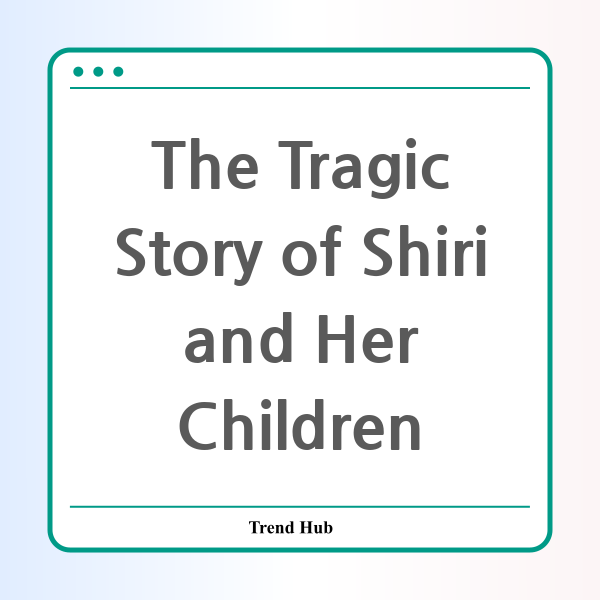* This website participates in the Amazon Affiliate Program and earns from qualifying purchases.

In a heart-wrenching turn of events, the tragic fate of Shiri Bibas and her two young children, Ariel and Kfir, has been confirmed. The news that they will be returned to Israel, not as they were taken, but as victims of violence, has left a community reeling with grief and a nation ache with sorrow. How did this happen, and what can we learn from such a tragic event?
On October 7, 2023, Shiri Bibas, an accountant known for her kindness, and her two sons were kidnapped by Hamas from their home in Kibbutz Nir Oz. Shiri was a dedicated mother who not only nurtured her own children but cared for others in the community. Ariel was only four years old, and her baby, Kfir, was just nine months old when the unimaginable occurred. As the days turned into months, the hope for their safe return dimmed with every passing moment, and after 503 days in captivity, the brutal confirmation of their deaths has caused widespread devastation.
Oded Lifshitz, an 84-year-old journalist and peace activist, was also taken alongside Shiri and her children. His life was dedicated to helping others, and he actively advocated for peace, making his loss particularly poignant for those who knew him. His family, like Shiri’s, has expressed their despair in the wake of this heart-rending news. The families of all four victims were informed that their loved ones would be returned to Israel; however, they would not be returning alive.
The circumstances surrounding their deaths remain unclear, leaving families and friends desperate for answers as to what transpired during their captivity. As the Israeli government works to reconcile the loss of these lives with the larger context of the ongoing conflict, many are questioning the implications of this tragedy. What does it reveal about the current state of affairs in the region? How can similar situations be prevented in the future?
After months of negotiations and the delicate nature of ceasefire agreements, the release of hostages has been a sensitive issue. During the first phase of the ceasefire, several hostages were released in exchange for a significant number of Palestinian prisoners. Yet, the reality remains that approximately 70 hostages are still in Hamas custody, with many feared dead. The impact on the families of the hostages and the broader community cannot be overstated; the psychological toll of such loss is immense.
In a statement following the confirmation of Shiri’s and her children’s deaths, the Hostages and Missing Families Forum expressed the collective heartbreak felt across nations. The realization that innocent lives, especially those of children, were lost in this conflict brings forth conversations about the humanitarian crises that persist. How does one begin to heal from such a loss? And what measures can be taken to address the broader issues at play to ensure that no more families endure such unbearable pain?
As this painful chapter concludes with their return, it ignites a call to action for peace and dialogue. The suffering experienced by the Bibas and Lifshitz families resonates within the hearts of many, reminding us of the shared humanity that transcends geopolitical boundaries. Collectively, we must advocate for the end of violence and strive for a future where children can thrive in safety and peace.
At this dark time, we urge everyone to remember Shiri, Ariel, Kfir, and Oded not just as victims but as individuals whose lives held immense potential and promise. While their stories ended in tragedy, their memories must continue to inspire action towards a safer, more compassionate world.
* This website participates in the Amazon Affiliate Program and earns from qualifying purchases.